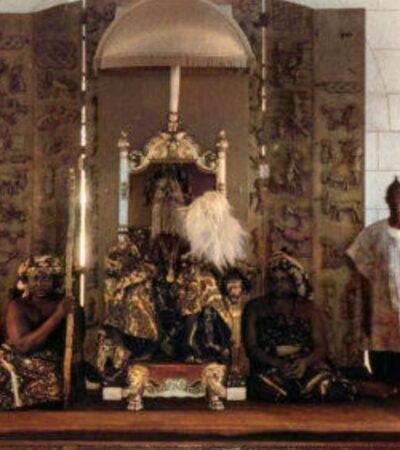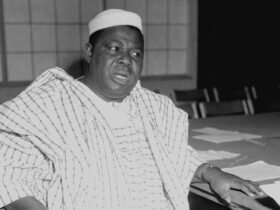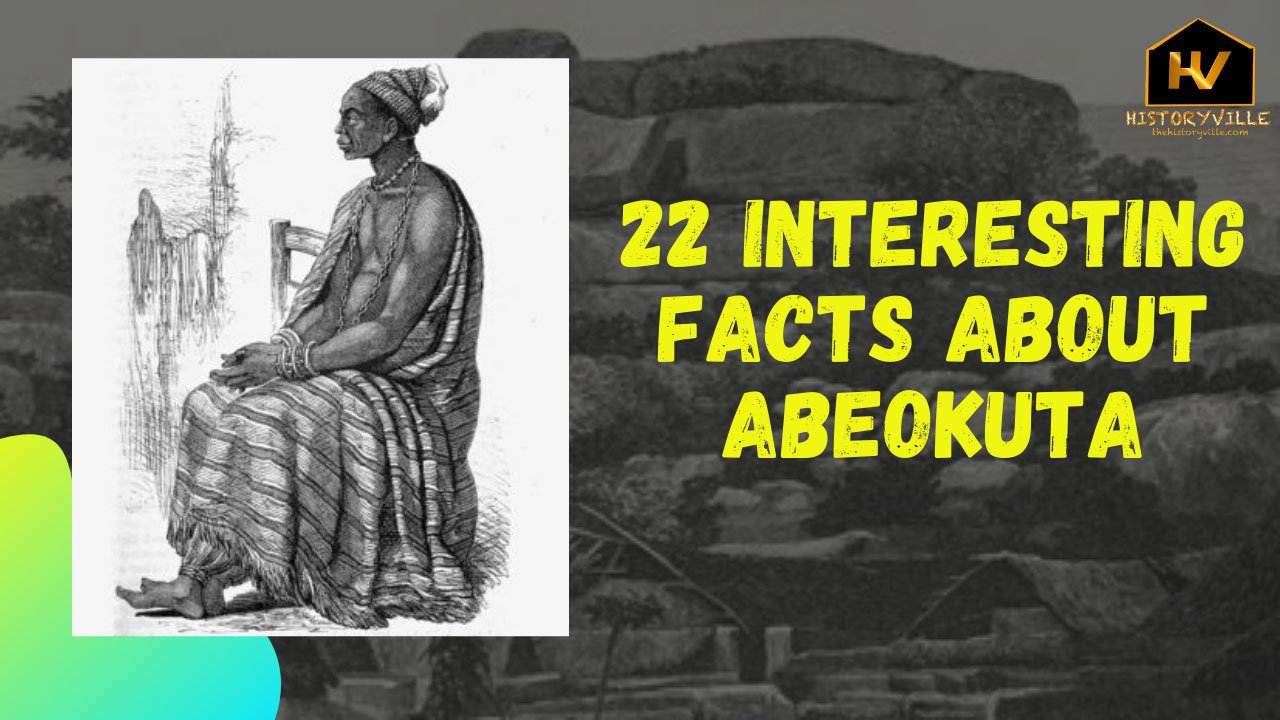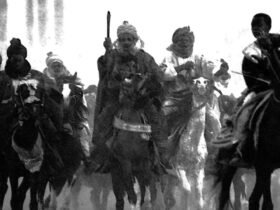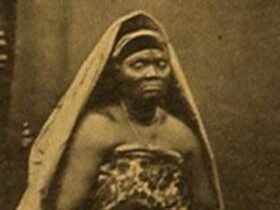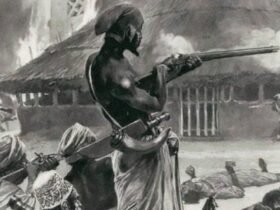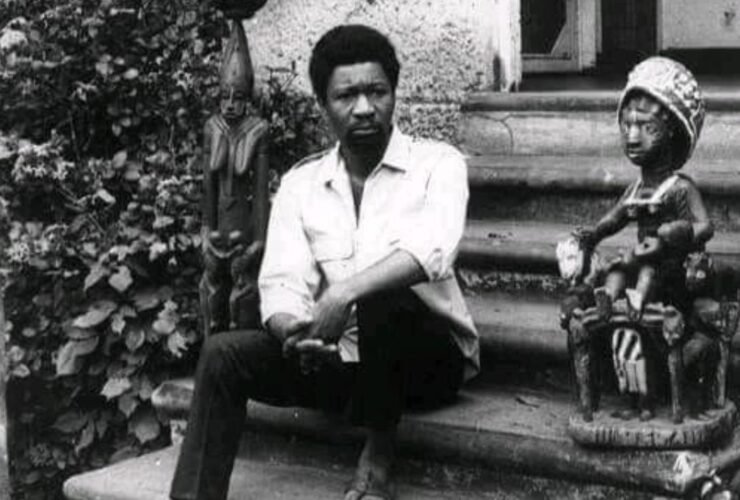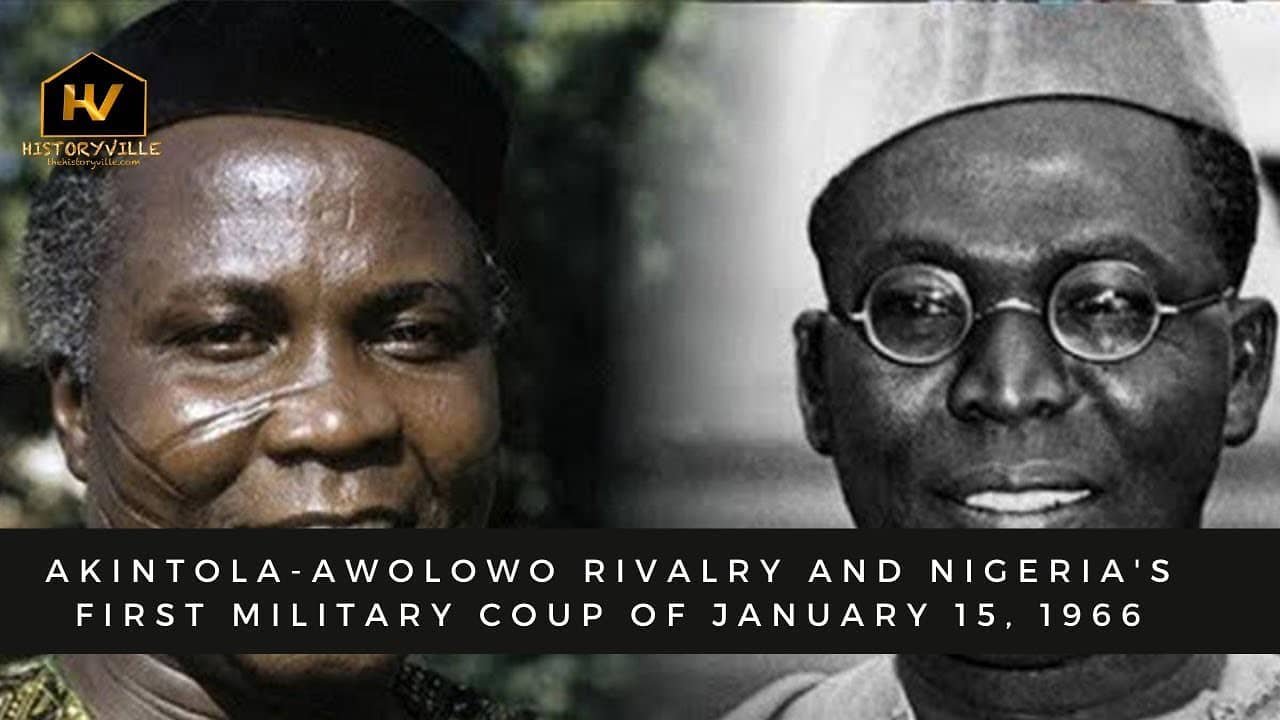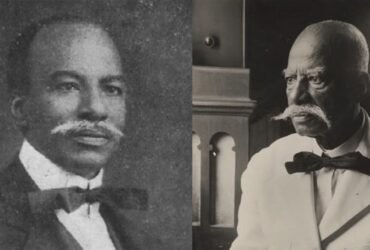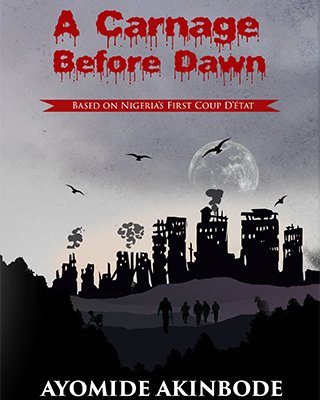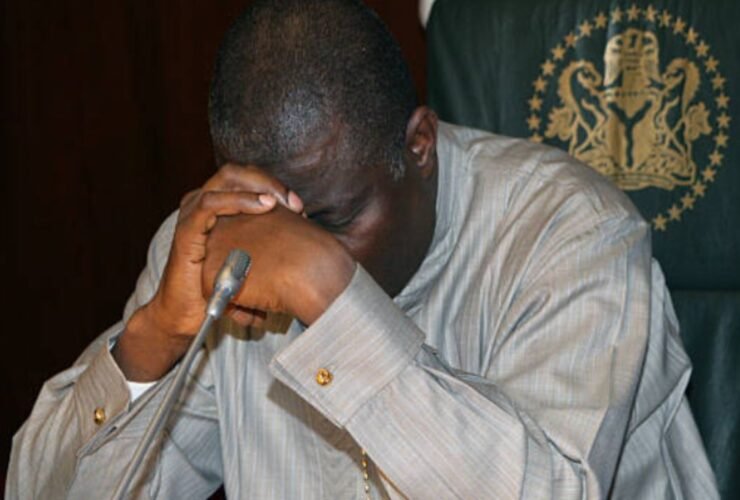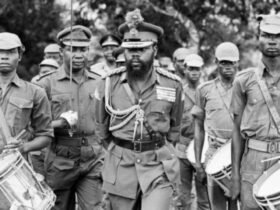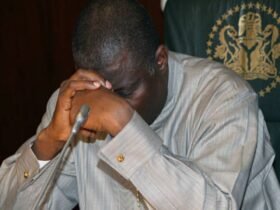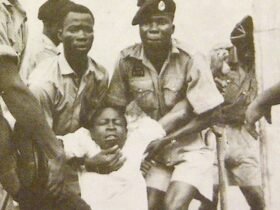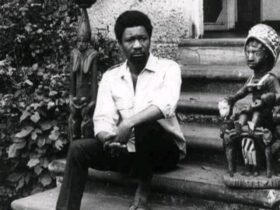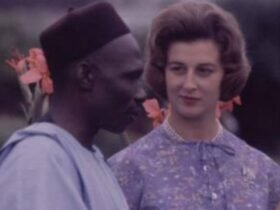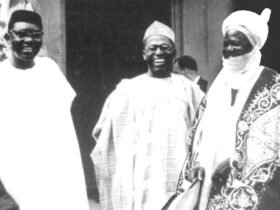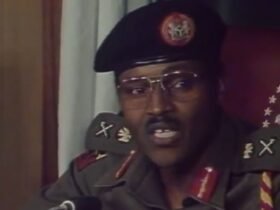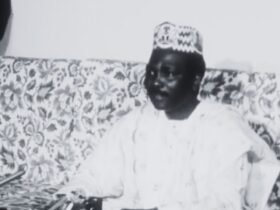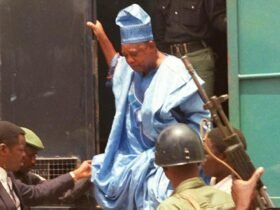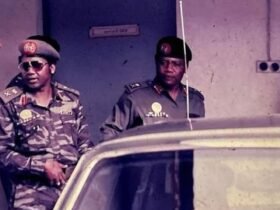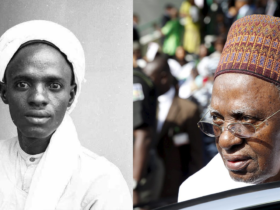No products in the cart.
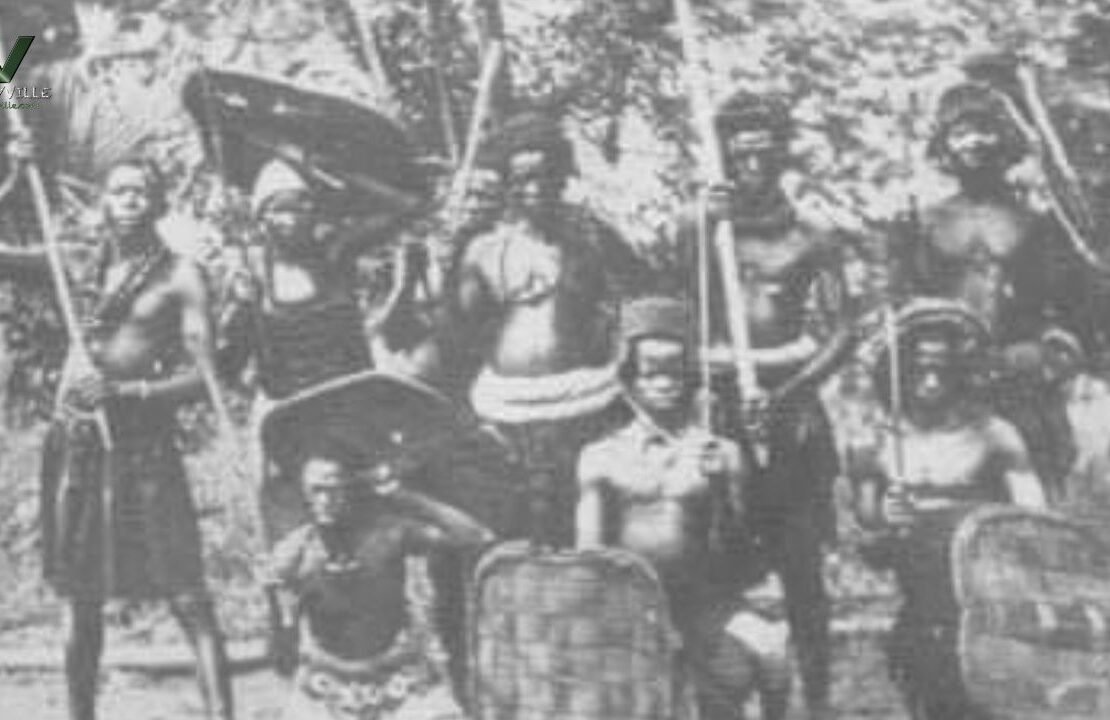
British colonialism led to the crumbling of the system of governance of the non-centralised states. ...
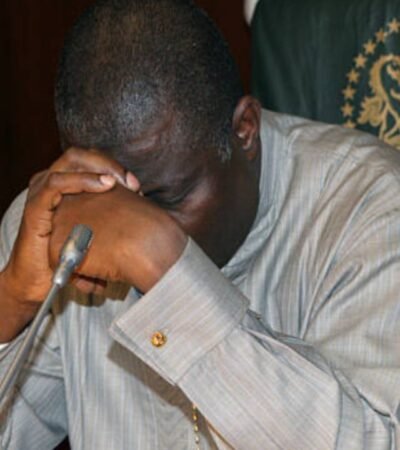
Interesting Facts
Discover 30 fascinating facts about Festus Okotie-Eboh—Nigeria’s first post-independence Finance Minister. From his early life and business empire to his tragic death in the 1966 coup.
At 80 years old, Muhammadu Buhari remains the oldest elected president to have left office. After leaving office, Buhari returned to Daura...
On December 5, 1893, Herbert Macaulay became the first Nigerian to qualify as a civil engineer and a member of the British Institution of Civil Engineers (ICE).
Abeokuta was a sovereign nation for 20 years and 11 months before the British amalgamated her with the rest of Nigeria in 1914...
Latest Video
Pre-colonial Nigeria
Colonial Nigeria
First Republic
(1960-1966)
In April 1963, Emir Muhammadu Sanusi of Kano flouted the First Law of Power and was deposed by the Sardauna of Sokoto, Sir Ahmadu Bello...
Nigeria’s First Republic lasted for less than three years until it fell on January 15, 1966, after the country’s first military coup.
The full story of how the political rivalry between Ladoke Akintola and Obafemi Awolowo led to Nigeria's First Coup D'état in 1966...
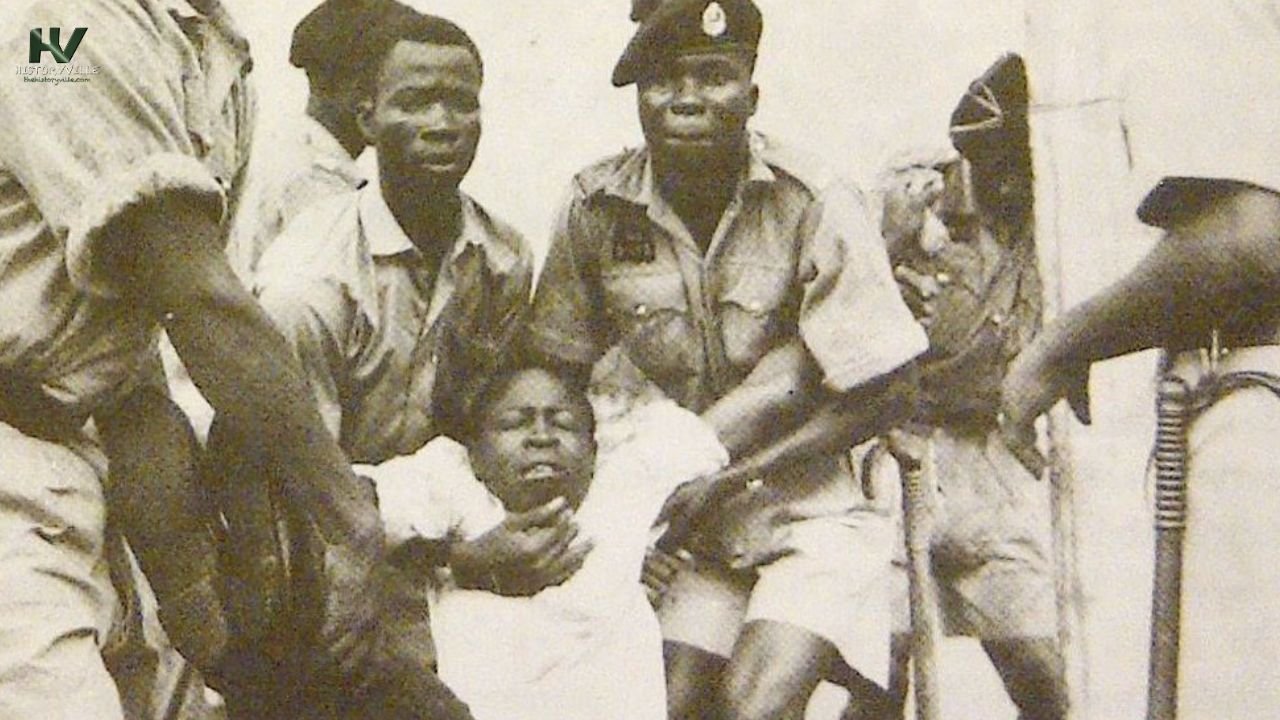
Operation Wetie came from the Yoruba expression, which means “drench it.” It became a grim command: drench your enemy in petrol and set him ablaze.
People & Places
Herbert Macaulay's evolution from a civil engineer to a formidable Nigerian nationalist leader underscores a ...
Second Republic (1979-1983)
In celebrating Shehu Shagari at 100, Nigerians must reflect on his contributions ...
Fourth Republic
(1999 to date)
Goodluck Jonathan admitted defeat in the 2015 presidential election and congratulated the new president, Muhammadu Buhari, on his victory.
On February 26, 2015, Buhari described himself as a converted democrat as he endeared himself to Nigerians in the race for the 2015 elections.
Asiwaju Bola Ahmed Tinubu allegedly labelled incumbent President Muhammadu Buhari as an “ethnic bigot and a religious fanatic” in 2003.
The October 2020 EndSARS Protest in Nigeria actively lasted for 17 days; from October 7, 2020, to October 24, 2020.
The Nigerian Civil War (1967-1970)
The Nigerian Civil War, also known as the Nigeria-Biafra War or the Biafran War, was a needless conflict that lasted 30 months, from July 6, 1967, to January 15, 1970.
The Nigerian civil war witnessed the death of about one to three million Nigerians, with the majority being from the Eastern region.
The Nigerian Civil War, also known as the Biafran War or the Nigeria-Biafra War, was a war fought to counter the secession of the Republic of Biafra from Nigeria.
The Ogbunigwe was used in combat during the Nigerian civil war and at the height of production, about 500 units were being produced every day in Biafra.
Latest Articles
The decentralised governance system that shaped non-centralised states in pre-colonial Nigeria differed from the centralised one...
To put it simply, Centralised States, as the name implies, are states with a central ruling or governing authority.
Goodluck Jonathan admitted defeat in the 2015 presidential election and congratulated the new president, Muhammadu Buhari, on his victory.
Operation Wetie came from the Yoruba expression, which means “drench it.” It became a grim command: drench your enemy in petrol and set him ablaze.
The road to Nigeria’s independence on October 1, 1960, was long and difficult. It was marked by resistance, sacrifice, and determination.
The Fulani Conquest of the Hausa City states was because of a holy war spurred by righteous indignation, which consequently gave birth to the Hausa-Fulani civilisation we know today.
In 1953, Nnamdi Azikiwe of the NCNC and Ahmadu Bello of the NPC came together to fight Obafemi Awolowo’s Action Group over the control of Lagos.
The August 27, 1985, palace coup against Muhammadu Buhari was not conceived as a bloody showdown but executed quietly within the heart of Nigeria’s military establishment.
Fifty years have passed since that quiet Tuesday morning on July 29, 1975, when General Yakubu Gowon was deposed in a bloodless coup in Kampala, Uganda.
Discover 30 fascinating facts about Festus Okotie-Eboh—Nigeria’s first post-independence Finance Minister. From his early life and business empire to his tragic death in the 1966 coup.
At 80 years old, Muhammadu Buhari remains the oldest elected president to have left office. After leaving office, Buhari returned to Daura...
The Epetedo Declaration was not just a speech—it was a battle cry. A moment of truth that shook Nigeria to its core.
On May 30, 1967, Lieutenant-Colonel Chukwuemeka Odumegwu Ojukwu, the military governor of the Eastern Region of Nigeria, declared the Republic of Biafra as an independent nation.
Herbert Macaulay's evolution from a civil engineer to a formidable Nigerian nationalist leader underscores a life dedicated to the relentless pursuit...
How did General Sani Abacha crush the April 22, 1990, Gideon Orkar coup and save the Ibrahim Babangida regime?
Madam Efunroye Tinubu (c.1810-1887): The Slave Merchant, Kingmaker in the Politics of Colonial Lagos
Madam Efunroye Tinubu was a powerful business tycoon and slave merchant who held the commerce and politics of colonial Lagos in the palm of her hands.
In celebrating Shehu Shagari at 100, Nigerians must reflect on his contributions with nuance, acknowledging both his strengths and his limitations.
The Nigerian Civil War, also known as the Nigeria-Biafra War or the Biafran War, was a needless conflict that lasted 30 months, from July 6, 1967, to January 15, 1970.
The Aburi Agreement reflected recognised the principle of regional autonomy and proposed a framework that would grant significant powers to Nigeria’s regions.

